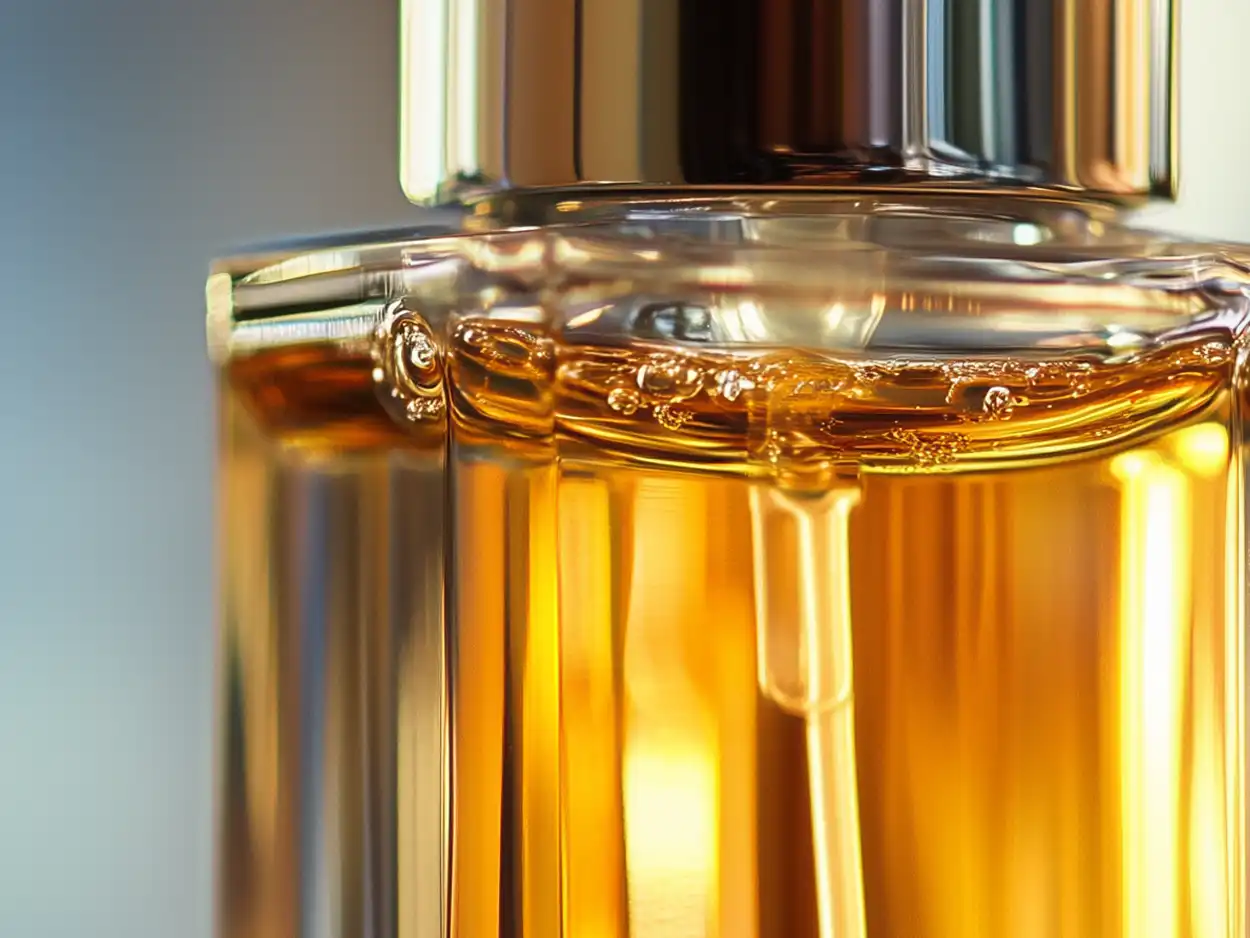Imagine a world where your favorite scent lingers delicately on your skin, free from the harsh bite of alcohol. This isn’t a fragrant fantasy—it’s the reality of water-based perfumes. Traditional fragrances have long relied on alcohol as a solvent, diluting potent fragrance oils to create wearable scents. But times are changing, and a new wave of perfumery is making waves in the beauty industry.
Water-based perfumes are exactly what they sound like: fragrances that use water as their primary solvent instead of alcohol. These innovative formulations offer a gentler approach to personal scent, replacing the familiar sting of alcohol with a soft, refreshing mist. But how do they manage to capture the complexity and longevity of traditional perfumes without their alcoholic backbone?
How are Water-Based Alternatives Made?
The creation of water-based fragrances is a testament to the ingenuity of modern perfumery.
Unlike their alcohol-based counterparts, these aqueous scents rely on a completely different set of ingredients and techniques to achieve their aromatic profiles. At the heart of this process is the use of water-soluble aroma chemicals, carefully selected and combined to build complex accords that mimic or reimagine traditional fragrances.
When perfumers set out to create a water-based version of an existing scent, they embark on a meticulous process of deconstructing the original fragrance. Each note is analyzed and then reconstructed using aromachemicals that can dissolve readily in water.
This requires a deep understanding of chemistry and often involves innovative solutions to replicate oil-soluble scents in an aqueous environment.
For entirely new water-based fragrances, the creative process is somewhat more straightforward but no less challenging. Perfumers work exclusively with a palette of water-soluble ingredients, crafting unique scent profiles from the ground up. This approach allows for greater freedom in composition but also demands expertise in balancing and stabilizing these water-friendly aroma compounds.
One of the key techniques in formulating water-based perfumes is the use of hydrosols or floral waters. These are produced by steam-distilling plant materials and contain trace amounts of essential oils naturally emulsified in water. Hydrosols provide a natural, subtle base that can be enhanced with additional water-soluble aromatics.
Another innovative method involves microencapsulation technology. Here, tiny droplets of fragrance oils are encased in water-soluble shells, allowing them to be suspended in a water base. When the perfume is applied to the skin, these microcapsules break down, releasing the scent gradually and enhancing the fragrance’s longevity.
Emulsifiers and solubilizers also play a crucial role in water-based perfume formulation. These ingredients help to disperse and stabilize small amounts of oil-based fragrances in the water medium, expanding the range of scents that can be incorporated into these alcohol-free compositions.
The Benefits of Water-Based Perfumes
Water-based fragrances offer a refreshing alternative to traditional alcohol-based perfumes, bringing a host of advantages to the world of personal scent.
One of the most significant benefits is their gentleness on the skin. Without alcohol’s drying and potentially irritating effects, these aqueous formulations are a godsend for those with sensitive skin or fragrance sensitivities.
The absence of alcohol also means that water-based perfumes provide a more true-to-scent experience. Alcohol can sometimes interfere with the initial impression of a fragrance, creating a sharp, astringent note that takes time to dissipate. Water-based alternatives allow you to experience the full bouquet of the scent from the moment of application, without any alcoholic interference.
You’ll find that these perfumes have a lighter, more refreshing feel on the skin. They don’t leave behind the sticky residue sometimes associated with alcohol-based fragrances, making them ideal for hot, humid climates or for those who prefer a more subtle scent presence.
Water-based perfumes are also more environmentally friendly. The production and transportation of alcohol used in traditional perfumes contribute to carbon emissions.
For those who travel frequently, water-based fragrances offer a practical advantage. They’re not classified as flammable substances, making them easier to transport in carry-on luggage without running afoul of airline regulations. This convenience allows you to take your favorite scent wherever you go without hassle.
Many users report that water-based perfumes feel more natural and skin-like. They blend seamlessly with your body’s chemistry, creating a scent that feels more integrated and personal. This can result in a more authentic and individualized fragrance experience.
The Drawbacks of Water-Based Perfumes
Despite their numerous benefits, water-based perfumes do come with certain limitations that are important to consider.
Perhaps the most noticeable drawback is their typically shorter longevity compared to alcohol-based fragrances. The lack of alcohol, which helps to fix scents to the skin and slow evaporation, means that water-based perfumes often require more frequent reapplication to maintain their presence throughout the day.
The scent projection, or “sillage,” of water-based perfumes is generally more subtle. While this can be an advantage for those who prefer a more intimate fragrance experience, it may disappoint if you’re looking for a scent that makes a bold statement or leaves a lasting impression in your wake.
Formulation challenges can sometimes limit the complexity and depth of water-based fragrances. Certain fragrance notes, particularly deep, resinous, or woody scents, are more difficult to recreate in a water-based medium. This can result in a more limited range of scent profiles compared to the vast array available in traditional perfumery.
Water-based perfumes can be more susceptible to bacterial growth due to the absence of alcohol’s preservative properties. This means they often require additional preservatives, which may not appeal to those seeking all-natural fragrance options. It also typically results in a shorter shelf life, requiring you to use the product more quickly once opened.
The texture and application of water-based perfumes can take some getting used to. They often feel more like a body spray or mist, which may not provide the same sensory experience as applying a rich, oil-based fragrance. Some users find this less luxurious or satisfying.
Lastly, it’s the price. The specialized ingredients and complex formulation processes required for water-based perfumes often make them more expensive than their alcohol-based counterparts. This higher cost may be a deterrent for some fragrance enthusiasts.
Conclusion
As you navigate the fragrant waters of perfumery, the decision to opt for water-based alternatives ultimately depends on your personal needs and preferences. While these innovative formulations offer a gentler, more skin-friendly approach to fragrance, they may not be the ideal choice for everyone.
For those with sensitive skin or fragrance sensitivities, water-based perfumes present a welcome solution. They allow you to enjoy the luxury of personal scent without the potential irritation caused by alcohol-based formulas. If you’ve long avoided traditional perfumes due to skin reactions, these aqueous alternatives could reopen the door to the world of fine fragrances.
Water-based perfumes also shine in specific situations. If you’re a frequent traveler, the ease of transporting these non-flammable fragrances can be a significant advantage. They’re perfect for tossing in your carry-on without worry, ensuring you always have your signature scent at hand.
However, for the average fragrance enthusiast, traditional alcohol-based perfumes still hold several advantages. Their longer-lasting nature, broader range of available scents, and often more complex fragrance profiles may outweigh the benefits of their water-based counterparts. If you don’t have specific skin concerns and enjoy the classic perfume experience, there may be little reason to make the switch.
It’s worth noting that the world of water-based fragrances is still evolving. As perfumers continue to innovate and refine their techniques, we can expect to see improvements in longevity, complexity, and variety. Keeping an open mind and occasionally exploring new water-based releases could lead you to discover a fragrance that perfectly balances your desire for a gentle formula with your scent preferences.

